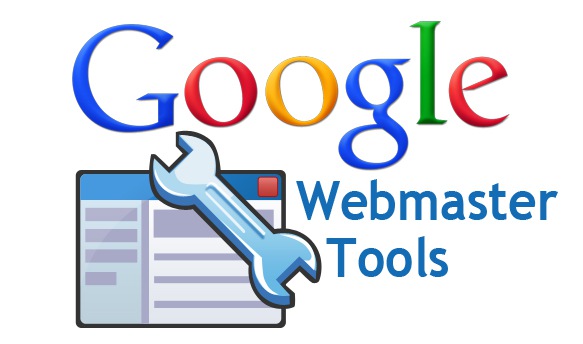 The brains at Google are always working to make the web a place where users produce content for each other, not just for web crawlers. They recently changed their Link Schemes section to include advertorials, large scale article and guest blog campaigns, and optimized anchor text in articles and press releases. This is hardly surprising, since the changes coincide with Google’s ongoing aim to discourage the manipulation of their search algorithms.
The brains at Google are always working to make the web a place where users produce content for each other, not just for web crawlers. They recently changed their Link Schemes section to include advertorials, large scale article and guest blog campaigns, and optimized anchor text in articles and press releases. This is hardly surprising, since the changes coincide with Google’s ongoing aim to discourage the manipulation of their search algorithms.
Large Scale Article and Blog Campaigns
What is considered a “large scale” blog or article campaign? As Matt Cutts said when he addressed this issue last year, the question is actually in what your intention is behind your guest blogging. If you intend to build lots of back links with your guest blogging, then you probably intend to do a lot of guest blogging for that purpose. If your intent is to establish credibility or add value to another person’s blog, then you’re probably not aiming for volume.
Advertorials
Cutts also addressed advertorials in a video earlier this year. An advertorial, also known as native advertising, is a piece of editorial content that a company pays to have published. This content usually contains back links to the company’s website. In essence, this is paying for back links, a practice that search engines have never been fond of. Earlier in the year Google penalized UK flower company Interflora for the use of advertorials to artificially boost their search rankings. Advertorials can be misleading to the reader, who is reading the content with the idea that the site owner is promoting the company for reasons other than monetary. Cutts advises that webmasters “clearly and conspicuously” disclose when a piece of content is an advertorial by using the words “advertisement” or “sponsored” to describe it.
Optimized Anchor Text
Optimizing anchor text is when you use target keywords as anchor text for a link back to your website. Google uses the following example:
There are many wedding rings on the market. If you want to have a wedding, you will have to pick the best ring. You will also need to buy flowers and a wedding dress.
Using keyword optimized anchor text is still a common practice in the SEO world, but here’s the thing: When Google’s web crawlers see this link leading back to your site, they assume that someone aside from you is in effect recommending your website by associating it with the keyword and a backlink. Since that isn’t the case, Google considers this to be a manipulative tactic.
How To Handle These Links
It’s still okay to publish content online that contains links back to your website. Google recommends that you use the “rel=nofollow” attribute to prevent these links from passing PageRank. You can also redirect the link to an intermediate page that is blocked from search engines using a robots.txt file.
The Case for Organic SEO
These updates to the Link Scheme document are meant to encourage people to use links for the original reason they were intended: To get people to click on them. Once upon a time, in the early days of the web, a webmaster would create a website and submit the URL to a search engine for indexing. The search engine would dispatch a web crawler to the URL, which would crawl the website for relevant links and keywords. The crawler would then send this information back to the search engine, which would give the website a place in the search results based on how relevant it judge the website to be.
It wasn’t long before people began to see the advantage in having a website rank higher than the next guy’s for relevance. There were no measures in place at the time to prevent people from taking advantage of search engines, so it wasn’t long before webmasters and internet marketers began to freely exploit weaknesses in search algorithms for their own gain. If you remember the internet of just three or four years ago, you remember that spammy websites and irrelevant search results abounded. Developers began creating more sophisticated search algorithms to bring order to the chaos. Over time, they made updates to the algorithms to make them even more bullet proof (think Panda and Penguin). Years of experience and accumulated technical savvy have made Google a much smarter search engine than it once was.
What Does It Mean For You?
You don’t have to nofollow every link in your offpage content. If it’s a link that you’ve added with the intention of link building, then it’s best to drop that aspiration and nofollow it. If it’s a link that you’d include naturally whether the search engines would see it or not, then leave it as is. If you have links in past guest posts that you haven’t nofollowed, then it’s probably too late to change those. Just keep Google’s new link scheme policy in mind for future reference.
How To Use Time You Would’ve Spent Link-Building
Instead of focusing on building links, get on social media, into forums, and in blog comments to build awareness for your site. This doesn’t mean that you should start spamming people. Rather, demonstrate that you have something of value to offer. Find fresh and worthwhile ways to attract a readership, and keep offering content that’s worth reading. In other words, let others build back links for you. Natural shares and other social signals do more good for your website than links you’ve created yourself.
You can also use this time to further optimize your website. Add meta tags, update files names, transcribe video, and do all of the other SEO stuff you’ve been putting off.
While there’s nothing wrong with using online content as a promotional tool, you want to be promoting to humans, not web crawlers. After all, it’s humans who indicate to search engines which websites are most relevant. As it has been said many times before, building links purely for the sake of SEO could get your website penalized. Links were always meant for driving organic traffic, and if the reader likes what he sees, he will likely want to share it. According to Google, this is just the way things ought to be.




